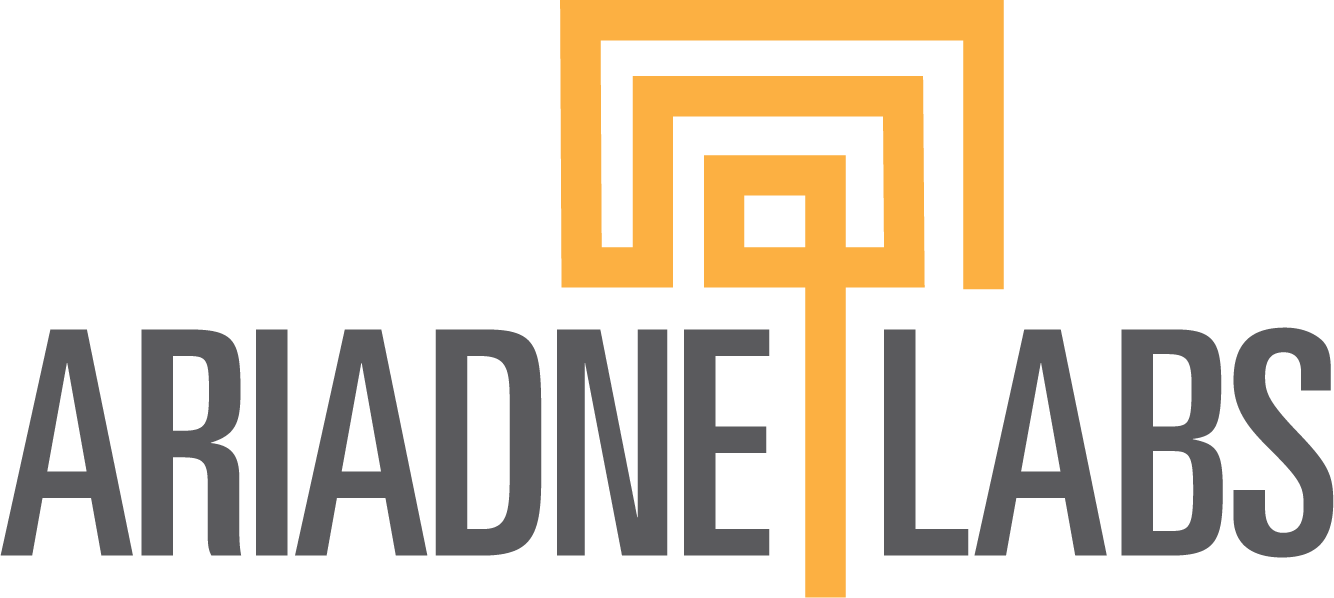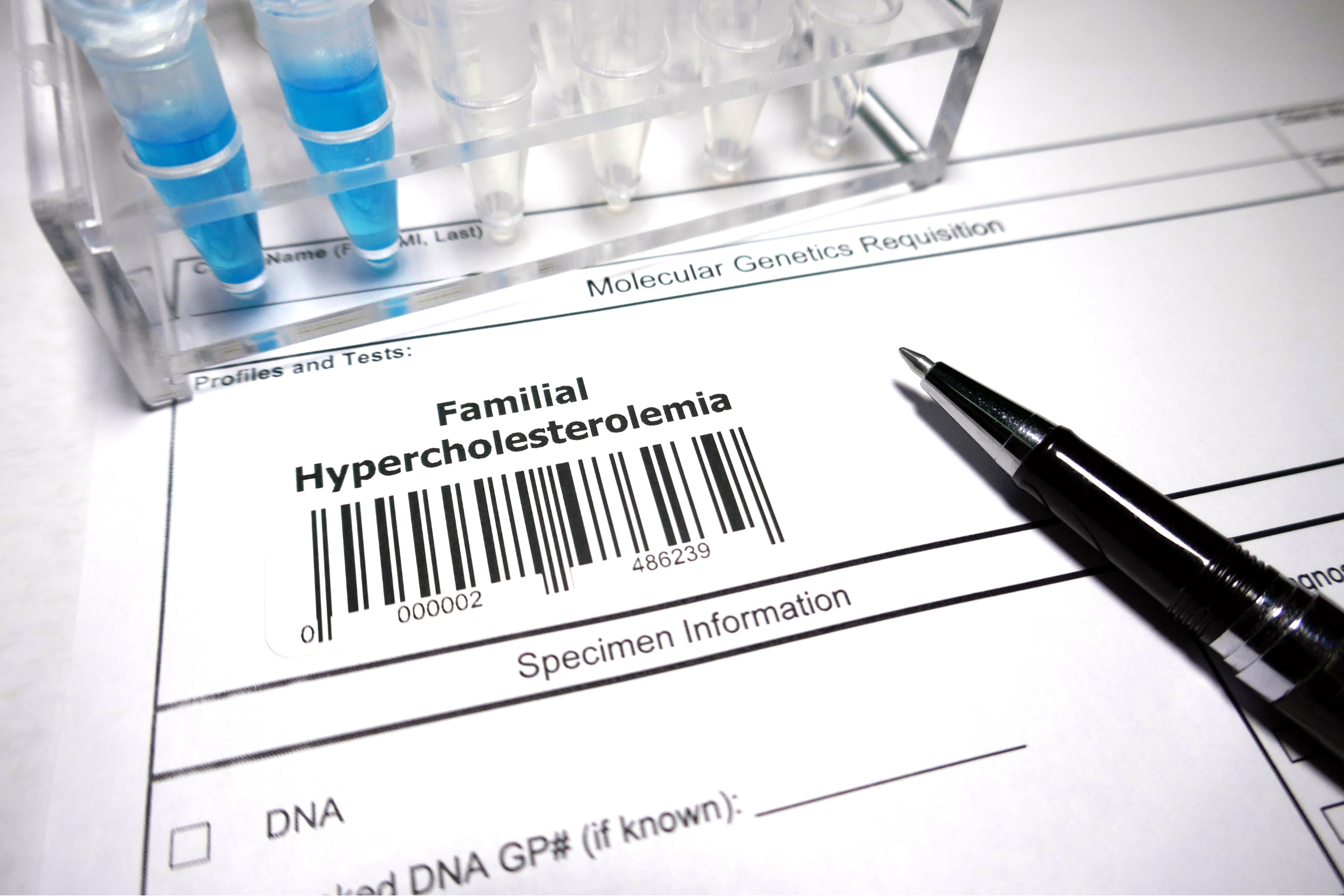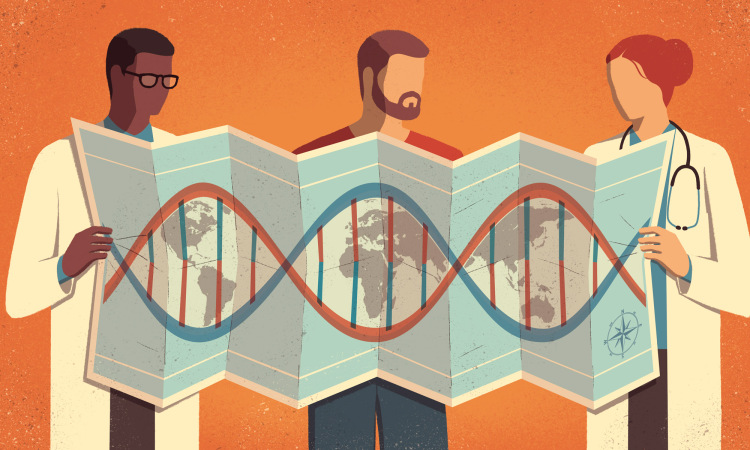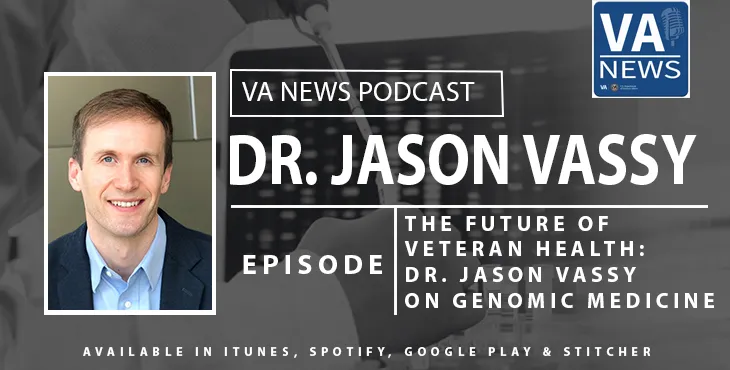Return of incidental/unanticipated omics

Genome Sequencing for Kids – Robert Green
Robert Green joins Pablos Holman on the Deep Future podcast to discuss the promise of genome sequencing in children. He draws upon his work from the BabySeq Project and from his new start-up company, Nurture Genomics, where he uses genomic screening in infants to detect and mitigate actionable genetic conditions.
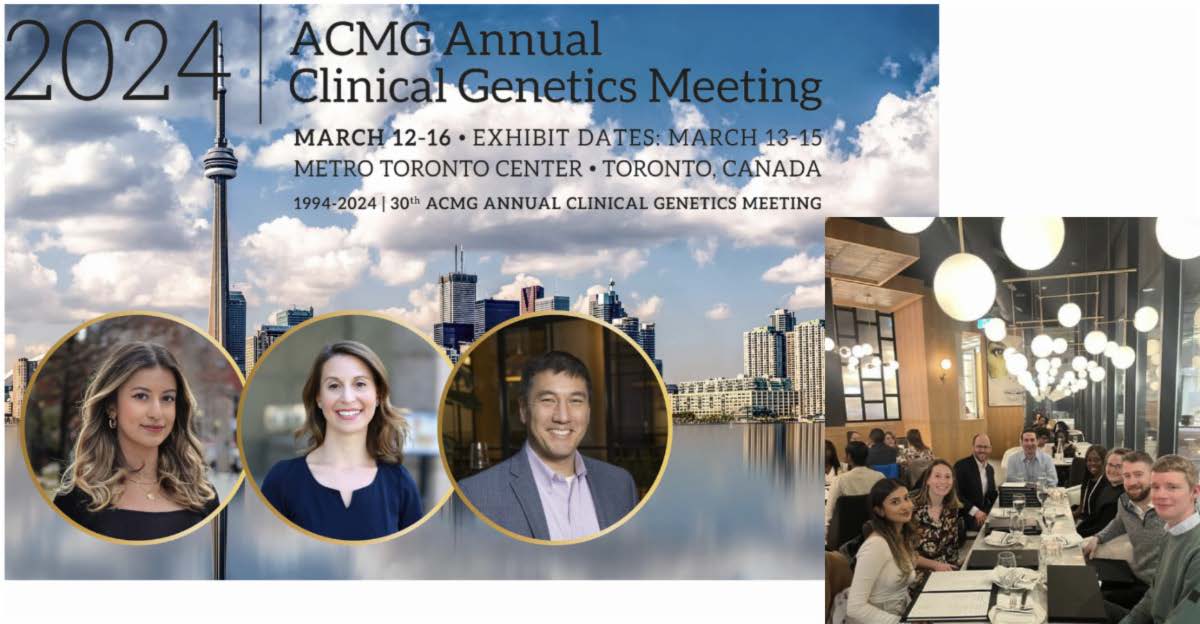
G2P March Newsletter 2024
Genomes2People’s first newsletter of 2024 highlights presentations at the ACMG Annual Clinical Genetics Meeting from several G2P collaborators including Ilham Abbasi, Dr. Nina Gold, and Dr. Kurt Christensen. The piece also highlights Dr. Robert Green’s recent interview with CBS News on Rare Disease Day that showcases findings and stories from the BabySeq Project. The newsletter … Continued
Development and utility of a clinical research informatics application for participant recruitment and workflow management for a return of results pilot trial in familial hypercholesterolemia in the Million Veteran Program
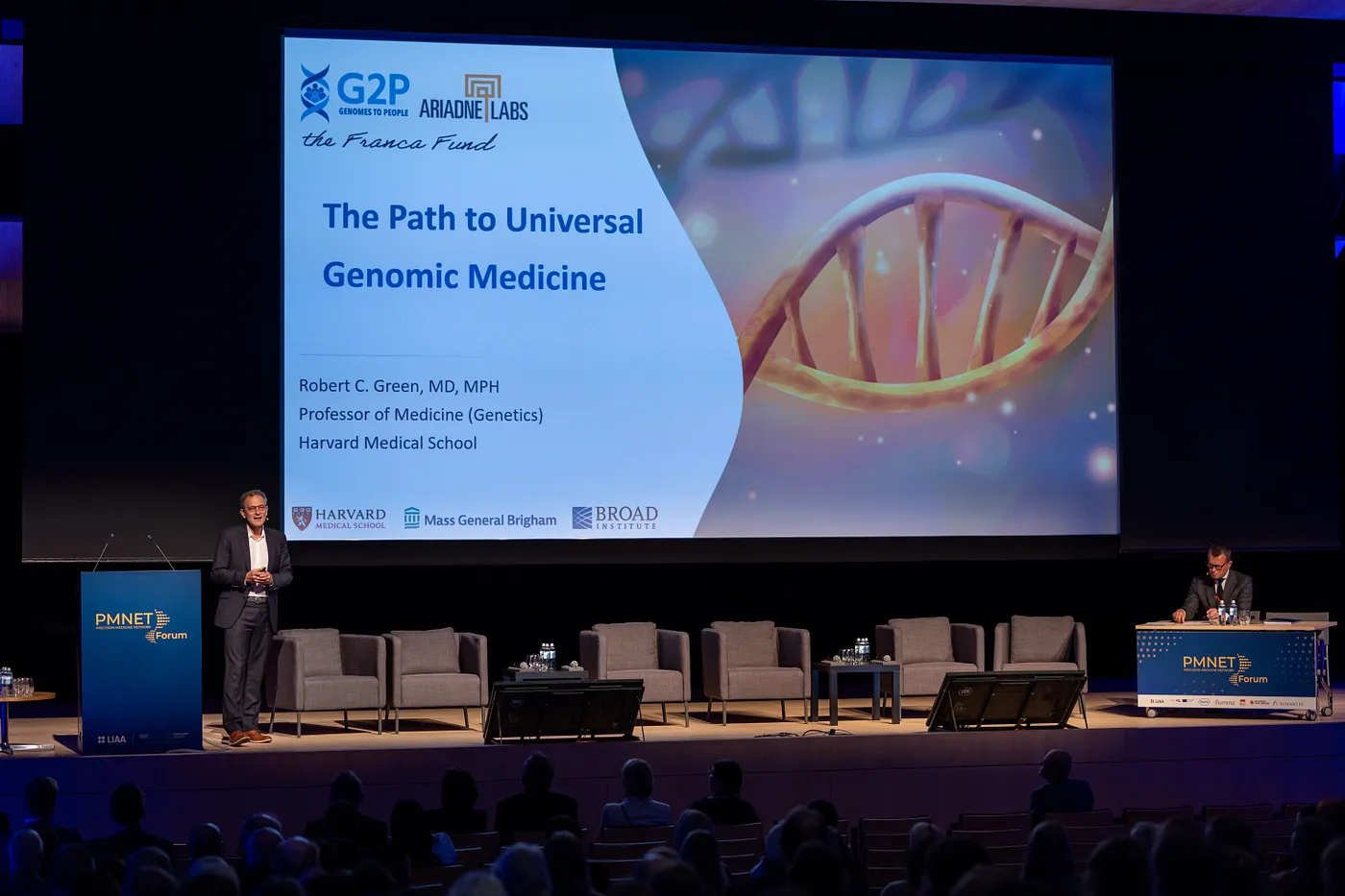
How Genomics Could Save Your Life
In this blog post, Dr. Robert Green poses the question: “What’s holding us back from doing more with preventive genomics in medicine?” Drawing on his recent keynote talk at the Precision Medicine Network (PMNET) Forum in Riga, Latvia, Dr. Green explores near-term applications of precision medicine using genetic testing such as: newborn and childhood sequencing, … Continued

BabySeq, ICoNS and the power of newborn sequencing: Q&A with Dr Robert Green
“In this Q&A with Will Greene, Healthcare Engagement Lead at Roche Diagnostics Asia Pacific, Dr Green talks about his pioneering work in newborn sequencing, including via the BabySeq project and the International Consortium on Newborn Sequencing (ICoNS), as well as his broader efforts to make genomic information actionable and accessible for people everywhere.”
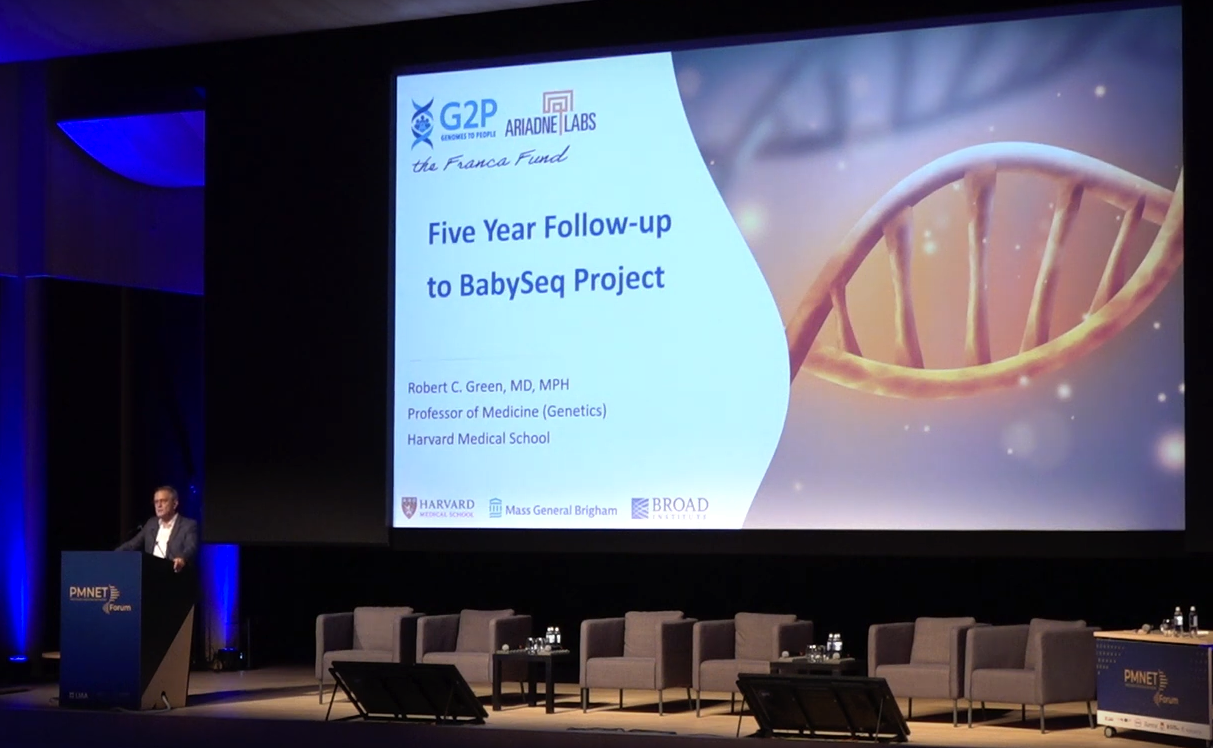
Five Year Follow-Up to BabySeq Project
The 2023 Precision Medicine Network (PMNET) Forum was held on October 12-13, 2023 in Riga, Latvia. PMNET’s mission is to improve patient care and outcomes by promoting development and adoption of Precision Medicine. Robert Green gave a talk about the five year follow-up of the BabySeq Project.
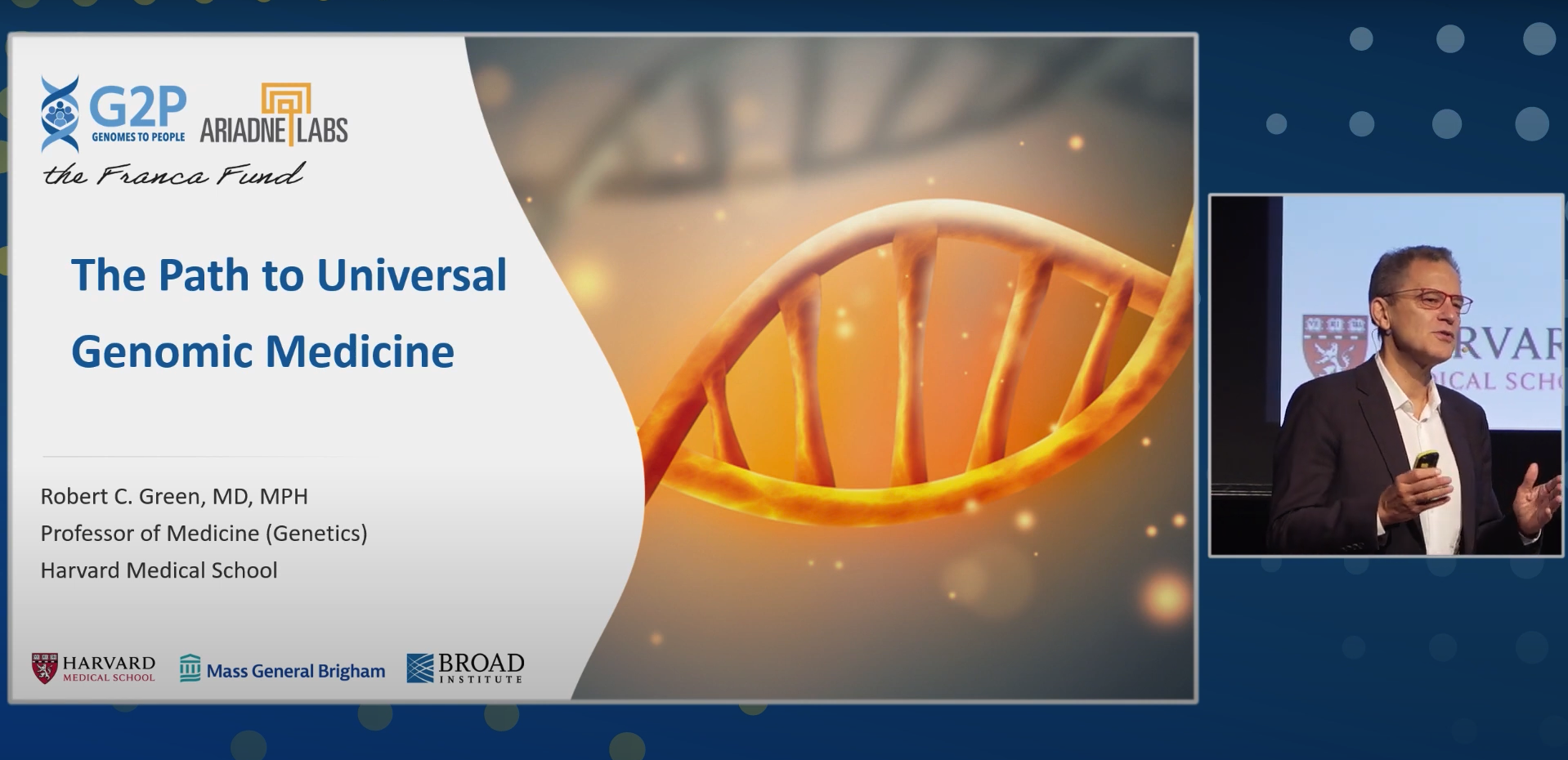
The Path to Universal Genomic Medicine
The 2023 Precision Medicine Network (PMNET) Forum was held on October 12-13, 2023 in Riga, Latvia. PMNET’s mission is to improve patient care and outcomes by promoting development and adoption of Precision Medicine. Robert Green shared a keynote talk during the introduction of the Forum entitled The Path to Universal Genomic Medicine.

Bringing equity to genomic sequencing in newborns: BabySeq 2.0
Read about how the second iteration of The BabySeq Project, BabySeq 2.0, is striving to make genome sequencing accessible to a diverse population of newborns at Boston Children’s Hospital and other sites around the country. Ingrid Holm, MD, MPH who co-leads BabySeq 2.0 describes how seeking input from a Community Advisory Board from each participating … Continued

Inside HGG Advances: A Chat with Nina Gold
Each month, the editors of Human Genetics and Genomics Advances interview an early-career researcher who has published work in the journal. This month they featured G2P collaborator Dr. Nina Gold to discuss her paper Phenotypes of undiagnosed adults with actionable OTC and GLA variants.
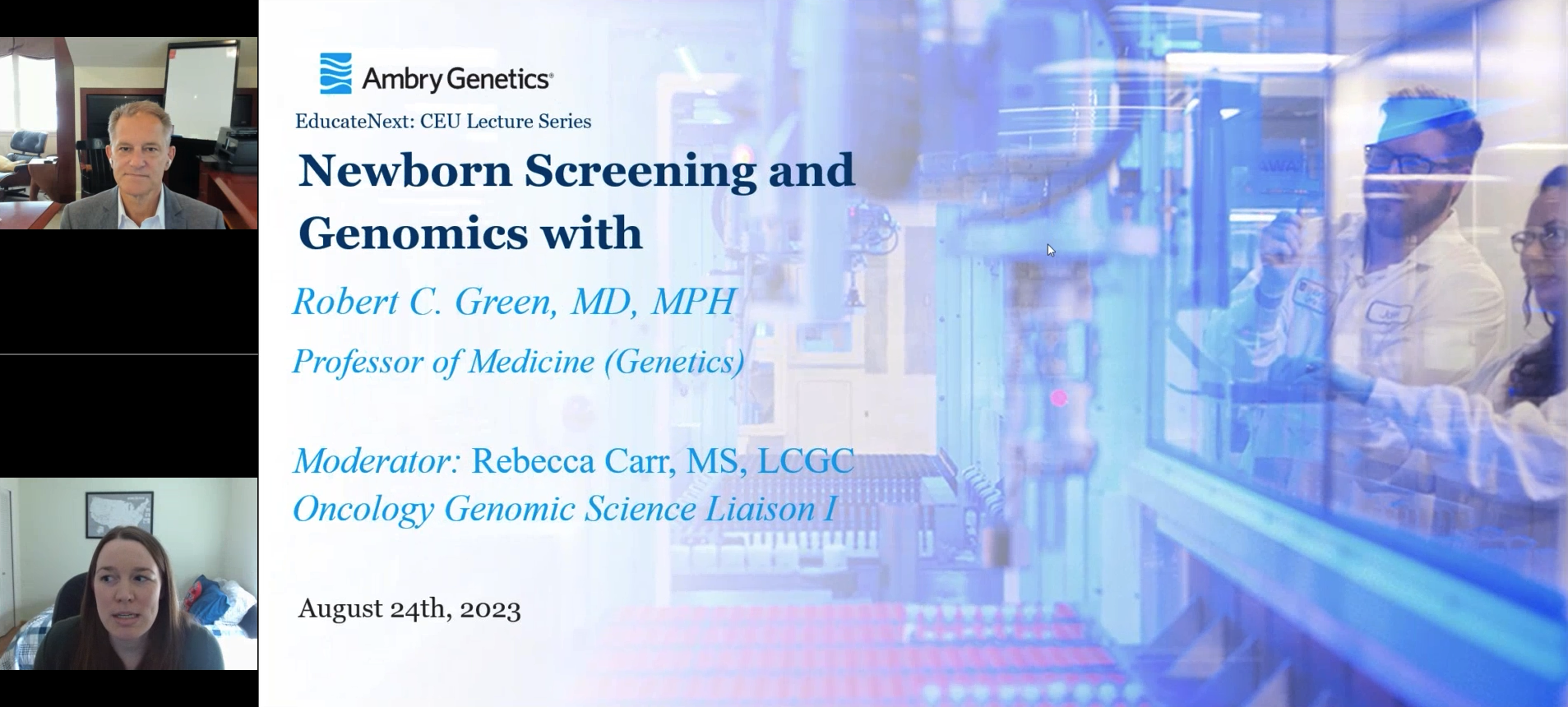
Newborn Screening and Genomics with Robert C. Green, MD, MPH
In this webinar Dr. Green explores the path towards a more personalized and preventive approach to medicine. He draws on insights gained from the MedSeq and BabySeq projects led by the Genomes2People Research Program (G2P).
Phenotypes of undiagnosed adults with actionable OTC and GLA variants
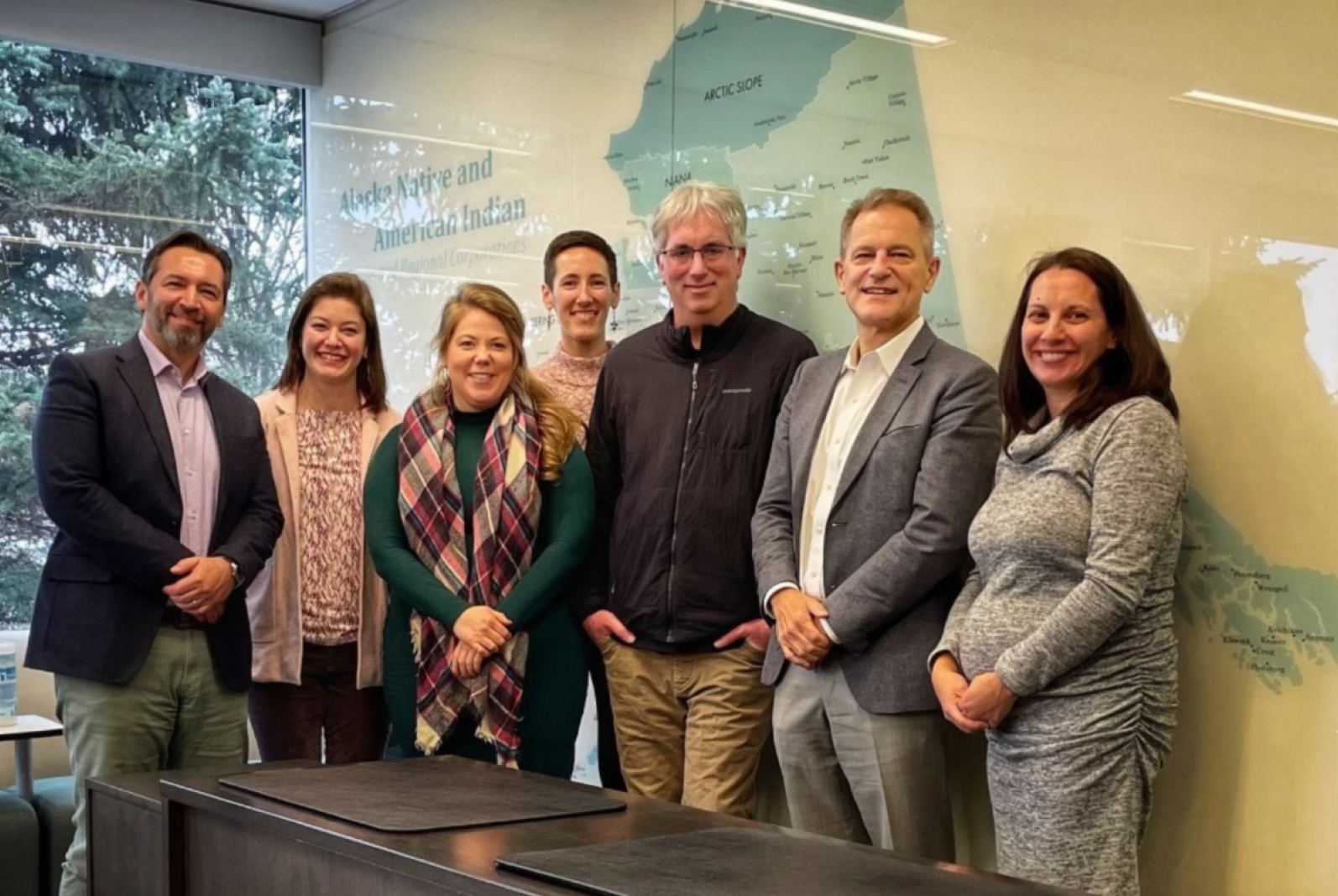
G2P July Newsletter 2023
In this newsletter we’re excited to announce that the Precision Population Health initiative (PPH) is working with the South Central Foundation (SCF) on a new clinical genomic screening program to improve the health of the Alaska Native population. We are also thrilled to share that registration for the Second Annual International Conference on Newborn Sequencing … Continued

BabySeq Project unearths actionable genetic variants impacting infants, parents
“The pathogenic or likely pathogenic variants turned up in 13 genes, the team noted, and included variants implicated in Lynch syndrome, breast and ovarian cancer, dilated cardiomyopathy, and other actionable adult-onset or childhood-onset conditions.”

Should a baby’s genes be sequenced at birth? Study finds potential life-saving benefits
“In the future, imagine identifying a risk for a devastating illness in a healthy newborn baby,” Green said. “Imagine then being able to find the biomarkers for the ones who are going to develop the disease and even preventing it. Imagine how thrilling that would be.”
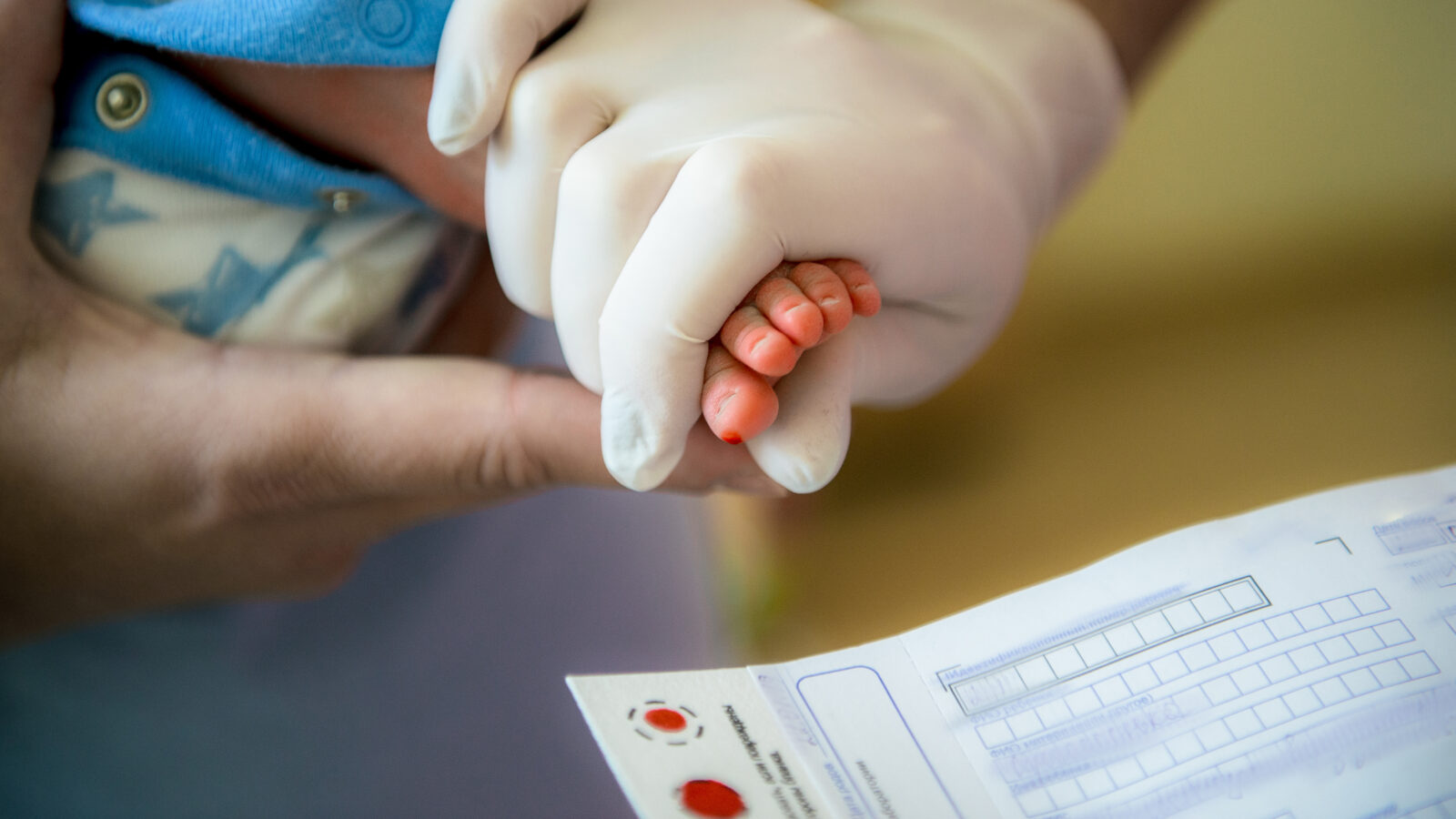
‘We arguably saved their lives’: Newborn DNA-sequencing reveals elevated cancer risks for parents
“There are ethicists who say a child should not be used as a genetic canary in a coal mine — that one member of a family should not be used without their consent as the access point for a whole family, but I’d like to challenge that. Look at these mothers. We arguably saved their … Continued

DNA sequencing in newborns reveals years of actionable findings for infants and families
“By screening apparently healthy newborns, entire families were alerted for the first time that dangerous but treatable genetic variants were present,” said corresponding author Robert C. Green, MD, MPH, a physician-scientist at Brigham and Women’s Hospital and professor of genetics at Harvard Medical School, who leads the BabySeq Project. “We were stunned to see that … Continued
Actionability of unanticipated monogenic disease risks in newborn genomic screening: Findings from the BabySeq Project
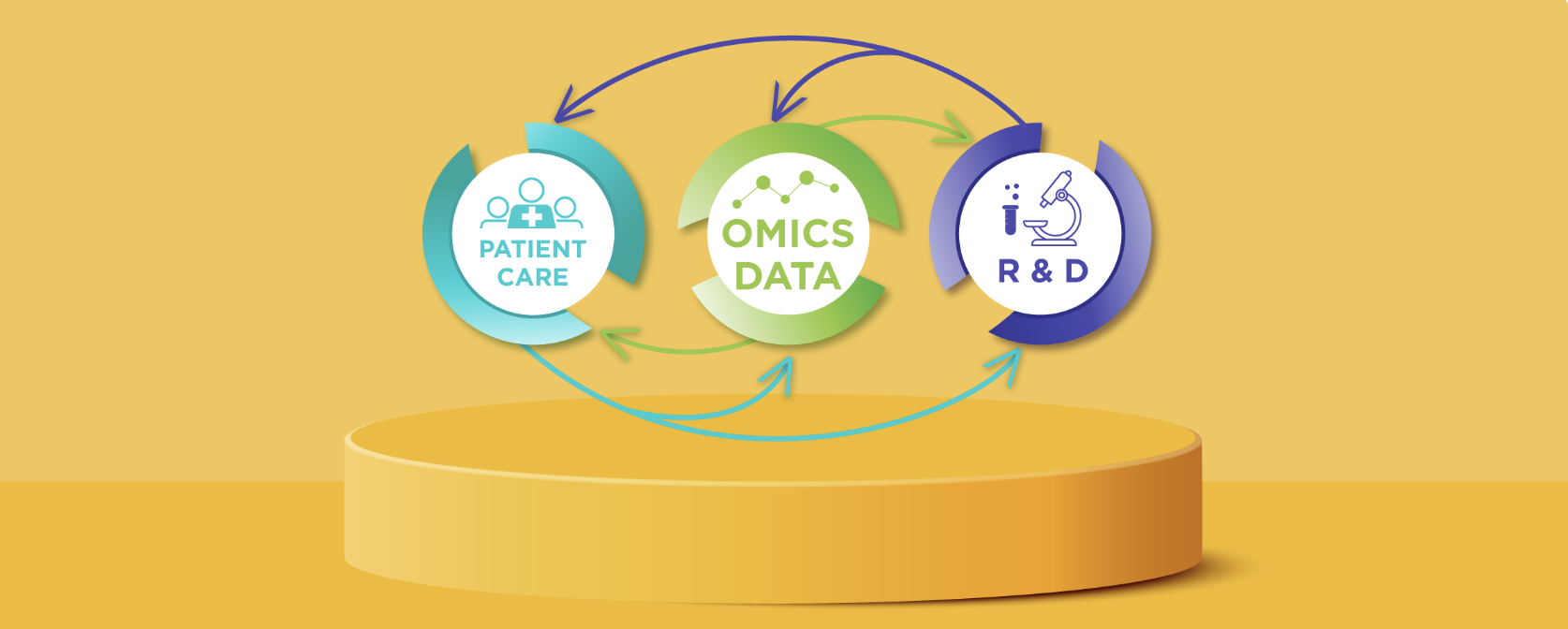
The missing links: How to ensure omics data fulfills its promise
“Omics data could herald a revolution in healthcare. The analysis of rich, interconnected and longitudinal multi-omics datasets promises a better understanding of the underlying biology of human health and disease, which in turn could lead to more effective prevention, earlier and more accurate diagnoses, new treatments and better choice of treatments. Despite that promise, only … Continued
Return of results in genomic research using large-scale or whole genome sequencing: Toward a new normal

Robert C. Green: By sharing their genetic risks, Hemsworth, Jolie are raising awareness of testing
In this Chicago Tribune post, G2P Director Robert Green writes that Hemsworth and Jolie are accelerating awareness and acceptance of a future where we do not wait to respond to the ravages of so many diseases but rather anticipate, predict and prevent them through genomics.
Public willingness to participate in population DNA screening in Australia

Making genomics as diverse as humanity
The lack of diversity in genomic research may be a call to fundamentally change the research enterprise.
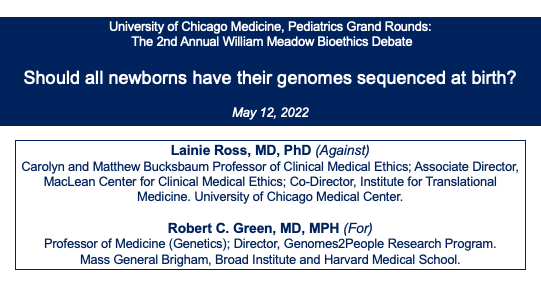
University of Chicago Medicine, Pediatrics Grand Rounds: The 2nd Annual William Meadow Bioethics Debate
In this debate hosted by the University of Chicago School of Medicine, Dr. Lainie Ross and Dr. Robert C. Green both respond to the question “should all newborns have their genomes sequenced at birth?”
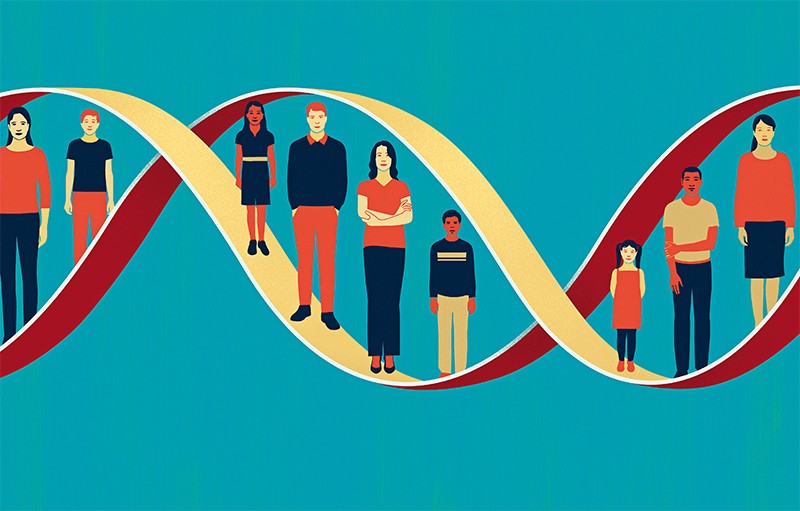
How genomics researchers can save their participants’ lives
“Genomic researchers who are returning results to participants need to look at how to incorporate sequencing now, not later.”

Their DNA hides a warning, but they don’t want to know what it says
The MGB Biobank returned actionable genetics results to 256 participants, 76.3 percent of whom were unaware that they carried a variant that put them at increased risk. The New York Times reports on this return of results process, outlining that some participants wanted to learn this information and others did not.
The reckoning: The return of genomic results to 1,444 participants across the eMERGE3 Network

Genomic results return study underscores clinical value, takeaways for expanded implementation
“Published in the American Journal of Human Genetics on Monday, the study describes takeaways from an effort by BWH’s Genomes2People (G2P) program to disclose actionable genetic results to research participants who volunteered to contribute to the Mass General Brigham Biobank.”

Returning genomic research findings reveals unrecognized disease risks
Press Release: In a new study published in The American Journal of Human Genetics, investigators from Brigham and Women’s Hospital, Massachusetts General Hospital and Harvard Medical School describe lessons learned from their experience disclosing actionable genetic results to research participants and transitioning them to clinical care. The team returned results to 256 participants, 76.3 percent … Continued
GA4GH: International policies and standards for data sharing across genomic research and healthcare
Return of individual research results from genomic research: A systematic review of stakeholder perspectives
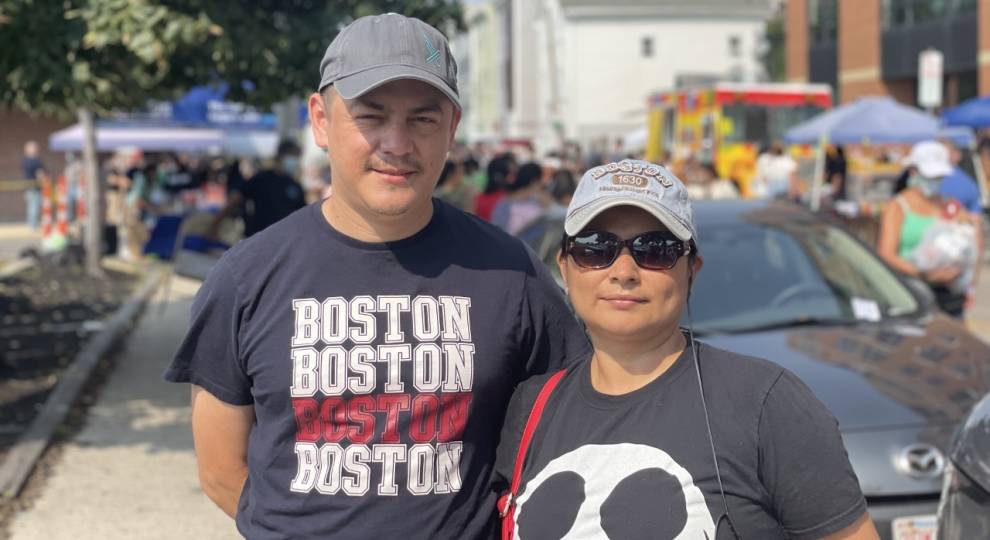
Diverse Boston neighborhoods recruited for sweeping study of genetics and health outcomes
“Medical researchers in Boston are helping sign up one million volunteers for a first-of-its-kind study [The All of Us Research Program] examining the link between genes and our health. Researchers are actively recruiting volunteers of different races and ethnicities to ensure that the study reflects the diversity of the United States.”

Sequencing every newborn’s genome to detect diseases faces ethical and practical obstacles, but the United Kingdom is pushing ahead with a major test
Genomic testing for Baby Cora, a participant of The BabySeq Project, revealed a disorder that might otherwise have gone undetected through traditional newborn screening. “Cora’s case illustrates the promise of sequencing the entire genomes of newborns: uncovering a bounty of genetic information that could identify infants needing treatment and improve health later in life…Genomics England … Continued
Returning actionable genomic results in a research biobank: Analytic validity, clinical implementation and resource utilization
Re-evaluating the “right not to know” in genomics research
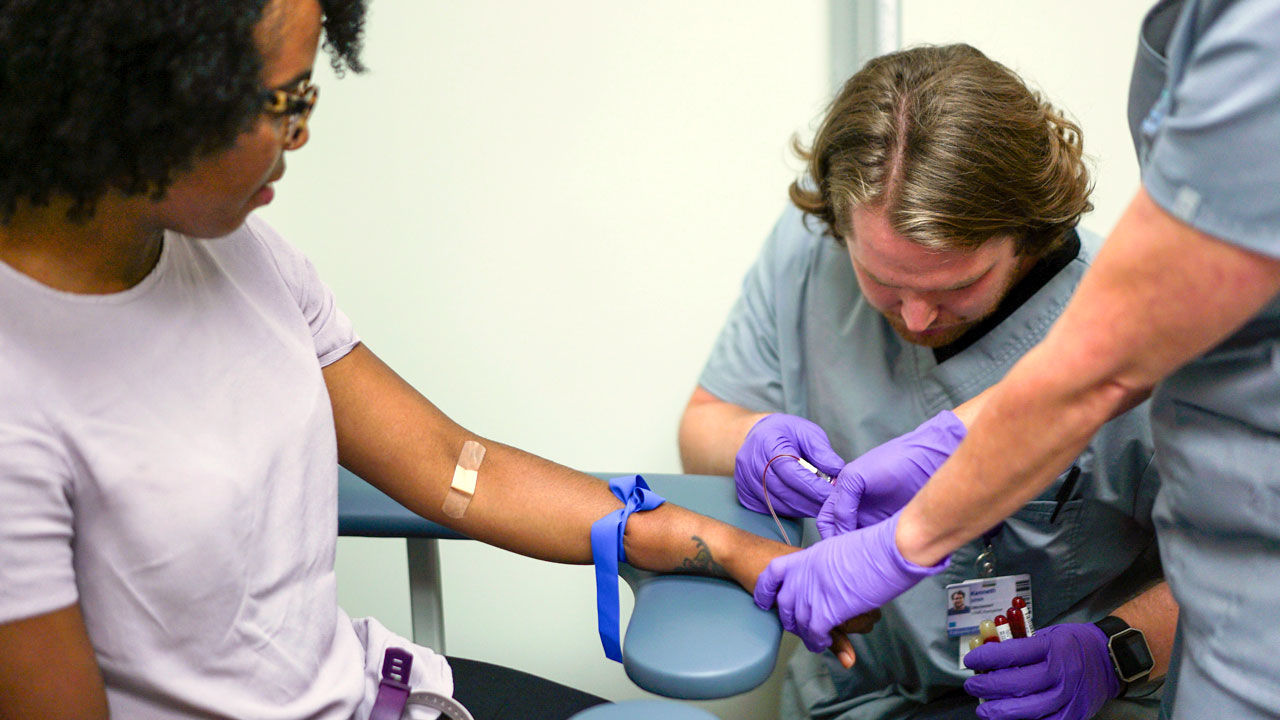
Controversy flares over informing research subjects about ‘incidental’ genetic findings
“Should people who volunteer for genomic studies be told about unrelated disease mutations that turn up in their sequence data?”

G2P Newsletter July 2021
Our G2P research team continues to be extraordinarily productive, publishing 21 scientific papers so far this year. This summer newsletter highlights a few of these papers, as well as G2P media features, blog posts, and policy recommendations.




